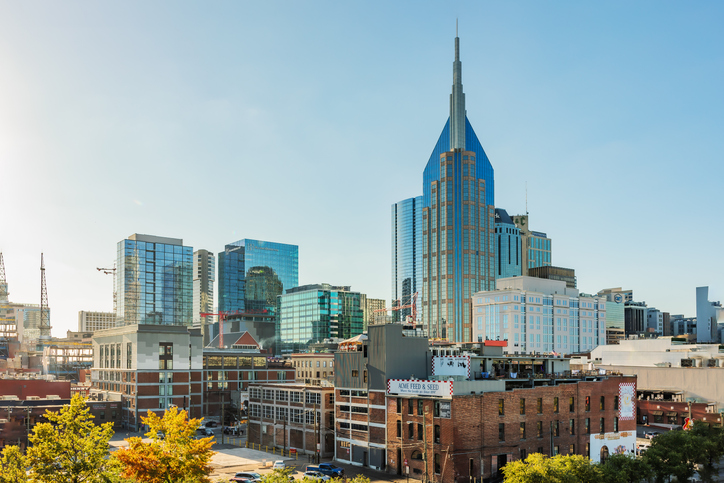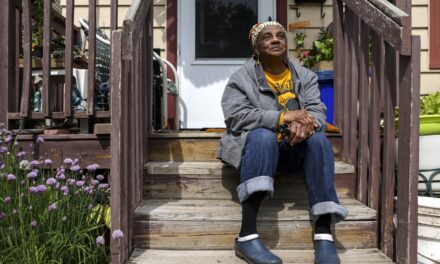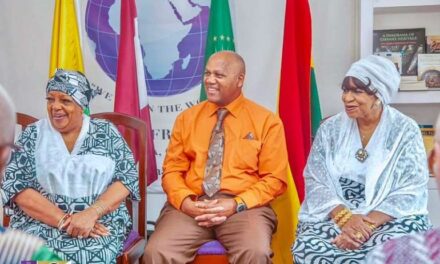

Source: Jacqueline Anders / Getty
Change makers from around the world convened for The African American Policy Forum’s fifth annual Critical Race Theory (CRT) Summer School series titled Freedom Summer 2024: No U-Turn on Racial Justice, held in person in Nashville, Tennessee, and online from July 28 to Aug. 2. The weeklong course included immersive breakout sessions, complemented by skills-building workshops and networking opportunities designed to inform, activate, and inspire participants on critical social justice issues.
What was taught at the CRT Summer School?
The CRT Summer School faculty, which featured prominent names such as award-winning author Dr. Michael Eric Dyson, iOne’s VP of Content Kirsten West Savali and civil rights attorney Ben Crump, analyzed how miseducation about CRT had been used to undermine racial justice and explored how CRT frameworks offered crucial insights into the current backlash.
In commemoration of the 1964 Mississippi Freedom Summer, Freedom Summer 2024 emphasized that on the 60th anniversary of this pivotal civil rights campaign, the exceptional classes highlighted the conservative extremists’ efforts to reverse the nation’s progress on racial and social justice over the past 70 years including state-level voting restrictions, the dismantling of affirmative action, and the banning of school books discussing systemic racism.
One panel explored how the so-called “war on woke” was, in reality, an attack on Black knowledge, history, and marginalized communities. Another class examined the role of colorblind liberalism, illustrating how its minimization of race and racism in American life had contributed to present-day issues.
iOne’s very own Kirsten West Savali hosted a breakout session titled “With Friends Like These: How Media, Politicians, and Self-Proclaimed Allies Embolden the Assault on Racial Equity.” The session underscored the influence of Black philanthropy on the “Race Class Narrative” and highlighted the importance of fact-based truths in media, especially in the current climate. Kirsten West Savali moderated the panel alongside activist and writer Tim Wise, Alvin Sparks, and several other panelists, who further examined how media, politicians, and civil society sometimes chooses to accommodate rather than challenge the ongoing assault on racial equity.
The African American Policy Forum’s annual event brought together diverse participants, including educators, DEI practitioners, students, parents, social workers, legal professionals, media figures, policy experts, and concerned community members. Attendees were provided with valuable tools and insights to confront and counteract efforts aimed at reversing advancements in racial and social justice.
What is CRT?
CRT teachings began in the mid-1970s spearheaded by American legal scholars Derrick Bell, Dr. Kimberlé Crenshaw, Richard Delgado, and Cheryl Harris, among others. The course sought to help deconstruct racism and compartmentalize the issue by hovering a lens over the subtle social and institutional dynamics that negatively impact people of color.
Reflecting on her experience at this year’s event, Kirsten West Savali told NewsOne, “While Critical Race Theory originated in law schools, over time it has become a framework applied to understanding and calling out systemic racism wherever it exists. To that end, I coined the term ‘Critical Race Media’ to frame the examination of white supremacist power structures and their detrimental impacts on Black communities, and mainstream media’s historical and present complicity in upholding them.”
She added, “Over the past four years, I’ve joined the African American Policy Forum, led by the brilliant Dr. Kimberlé Crenshaw and Dr. Luke Charles Harris, as a CRT Summer School faculty member. And was honored to do so once again, especially at a critical time such as this.”
SEE ALSO:
‘Unprofessional’: The Irony Of Sage Steele, Other MAGAts Whining About NABJ Questions To Trump
 12 photos
12 photos 

